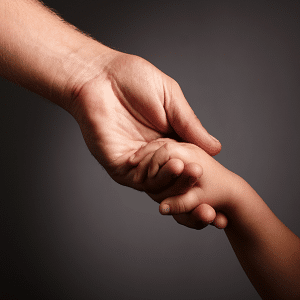When pondering what to write about regarding cannabis, I realized it was time to bring up the awkward issue of parenting and marijuana. Are you squirming in your seat yet? Thought so. That’s exactly why I’m speaking up. It’s a timely topic in our current climate, and one that many understandably want to avoid.
Similar to the dreaded “sex talk” (or any adult topic), speaking to your kids about marijuana can be intimidating and awkward. But we don’t have a choice; kids are much smarter than we give them credit for. That is why establishing the proper framework is so vital. cannabis is a plant, a plant that helps people. Simply saying “marijuana is a bad drug” is an even weaker statement than it was when your parents had this talk with you back in the day.
Starting the dialogue early is the best way to avoid this awkwardness. We are lucky. The paradigm has finally begun to shift—our kids won’t grow up with the same stigma that cannabis held for us. They are in the unique position to inherit a new landscape where herbal remedies are normal in so many households. So, it may feel weird, but the time has come to talk to your kids honestly about marijuana. Don’t feel the need to scare them, or to use information with shaky source material (i.e. the NDIA), or to rely on the old, “Just Say No”. This is the time to be real with our kids and tell them what cannabis is, and why it’s used in appropriate situations.
If you are already a supporter of medical cannabis, don’t feel pressured limiting cannabis use to just to people with life threatening diseases. Pleasure in it’s own right is not something that needs to be feared, but there are activities that are not meant for children, like that gin and tonic Mom and Dad sometimes have on the weekend. Our culture has become accustomed to this nuanced understanding with regards to alcohol, and using this analogy is a good way to de-stigmatize use without seeming like you are promoting it to your children.
Part of why this talk is so important is that normalization is the best defense parents have against creating problematic use later on in life. Anecdotally we all know that the kid who never gets sugar at home is the first to rip open the twinkies and sneak a Coke when they come over. The kid who never watches TV is going to go straight for the pay-per-view when his parents aren’t looking. Hiding and lying only heightens kids curiosity, not squashes it. What they see and know becomes, well, normal….and much less intriguing when the parents are not around.
No matter what method you take in talking to your children, remember that honesty is the paramount concern. Personally, I feel the best way to talk to a kid, about ANYTHING, is to keep it real and talk to them like they are people. Children perceive when they are being patronized and they inevitably resent it. It is far better to make children feel empowered, and the best way to do that is through engaging them in an honest and knowledge-based (both in terms of personal experience and scientifically vetted facts) discussion
So there’s my pitch. The insane and zany option of being honest with your kids about cannabis. No sweeping statements, no black and white pronouncements. No, “Drugs are bad mmm-K” or “This is your brain on drugs” frying pan sketches. Those hyperbolic campaigns of the past were so disingenuous that children see right through them- and will never trust you again if you parrot them in 2016.
Simply put, talking about cannabis with our kids is the first step towards a more healthy and balanced community. It may be a scary leap from past paradigms, but I feel I’m raising two aware, astute children that will be much better suited to enter high school and become young adults where they will begin to have to make decisions about sex, drinking, cannabis and many other things. Let’s educate our kids so they have the data and knowledge to make the right decision when the time comes.
***
This article was sent to Johnny Green by the author. Jim McAlpine is the creator of The 420 Games, which was established to show that cannabis users are NOT lazy, unmotivated or “stoners” and to de-stigmatize the millions who use cannabis in a healthy and responsible lifestyle.




